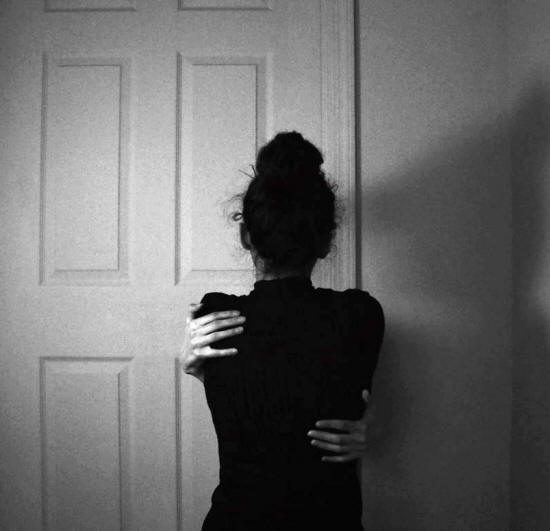|

by
Aletheia Luna
May 03, 2023
from
LonerWolf Website

Having a nervous breakdown was one of the best things that ever
happened to me.
Before reaching the absolute end of my stress threshold, I never
thought that finding inner peace - especially for a highly sensitive
person prone to anxiety - was possible.
Peace was a completely
foreign concept to me.
But after undergoing multiple instances of mental breakdown, I
finally learned what inner peace is (and isn't).
And it's not what I
expected...
As a highly sought-after state and experience on the spiritual
journey, inner peace is every spiritual seeker's secret desire.
But what actually is
it?
And how do we 'find'
or 'attain' it?
What is
Inner Peace?

Inner peace is what we feel when our body, mind, heart, and soul are
at rest.
Instead of striving to
control or resist ourselves and others, we feel a sense of profound
acceptance, forgiveness, love, and compassion for ourselves, others,
and all of life.
Inner peace is synonymous
with being in touch with your True Nature:
it is a state of
inner rest...
Perhaps most importantly,
and above all, inner peace can only and ever be found in the present
moment (which is all we truly have).
And yet, many of us live
with the assumption that inner peace can only be found "out there"
in some perfect future state of being - but this very belief
perpetuates our lack of inner peace.
The Key to Finding Inner Peace

Put simply,
inner peace is the byproduct of letting go and
surrendering to whatever this moment, this every-changing movement
of life, presents to us.
Inner peace isn't about chasing, striving, and trying to 'earn'
tranquility. You can't.
Trying to 'fight' for inner peace is
contradictory and pointless:
it just deepens our
suffering...
Instead, finding inner
peace is about relinquishing our need to control and fight.
Essentially, you could
say it's about giving up - but not in a disempowering way.
Rather,
it's a form of resignation that is based on a deeper understanding
that Life is perfectly orchestrating everything we're experiencing
based on a deep wisdom we cannot possibly fathom - typically for our
growth and healing.
Therefore, why the need
to constantly resist everything?
"But doesn't this
mean I'll become a pushover or doormat that people can abuse if
I just 'let go'?" you may wonder.
No...
Living life from a
place of letting go and surrendering isn't about allowing ourselves
to be used or abused.
We still need to practice
self-care, self-respect, and self-love. This can mean setting
boundaries, saying no, and removing ourselves from harmful
situations.
But letting go also means surrendering our resentment,
blame, and hatred toward others.
Do you see the
difference? Life is about balance...
Let's try a simple exercise that will help you to understand what
inner peace feels like on a visceral and embodied level:
Sit down somewhere
quiet.
Then tense up your entire body. Imagine you're being
scrunched into a tight ball. Hold that for 10 or 20 seconds
Become as contracted as possible.
Make yourself super stiff and
uncomfortable.
Then, totally release that full-body contraction.
Let go...
Can you feel how spacious your body is now?
That's what inner peace
is like - except it radiates from the inside out.
12 Ways to Find Inner Peace

As we now know, inner peace is a movement of opening, surrendering,
and letting go.
But what exactly do we let go of?
As always, let's look within ourselves first and see all the forms
of inner conflict we carry. This practice might be painful and
challenging for our egos to handle, but it's profoundly important.
Here are twelve ways to find inner peace summarized:
-
Be aware of the
self-improvement treadmill
-
Stop expecting
that life and people should be different
-
Release grudges
and resentments
-
Sit with your
emotions (and embrace them)
-
Realize that you
are not your thoughts or emotions
-
Be aware of your
obsessive need to control
-
Embrace being
dislikable
-
Let go of playing
the martyr or victim
-
Forgive yourself
(and therefore others)
-
Understand that
you don't need to be "perfect"
-
Release the need
to be right
-
Stop dwelling in
the past (or future)
I'll elaborate below...
1. Be aware of the self-improvement treadmill

To prevent this article from becoming another
"X-Ways-to-Change-Yourself" kind of post, I want to point out that
the spiritual search itself can be counterproductive.
The desire to
constantly improve, fix, and heal ourselves can (very quickly!)
become a kind of treadmill that entraps us.
Of course, there's nothing wrong with seeking growth and change. But
please know that at a core level, you are already Whole. Your mind
might be fragmented, yes, but your essence is already Whole and
Complete.
Place your hands gently over your heart, close your eyes,
and sense into this innate wholeness and Oneness within you for a
moment.
Can you feel it?
Can you sense that original innocence that
you were born with?
Truly understanding and feeling the reality that you are already
whole can save you from experiencing tremendous stress and burnout.
After all, chasing an idea of perfection and running after the
experience of inner peace itself paradoxically prevents you from
experiencing it (because the peace you're seeking is already right
here, right now, deep within you)!
So being mindful of this reality, please read the rest of this
article with a light mind and heart. Everything will happen when it
needs to happen.
The following pieces of advice are simply pointers
and places you can decide to explore and delve into at your level.
No stress, no rush.
So with that caveat, let's move on to the next mental contraction
that deprives you of peace:
2. Stop
expecting that life and people should be different

Here's the reality:
you can expect, and expect, and expect, and
expect... but what happens at the end of the day?
You feel worn out,
resentful, bitter, stressed, and hopeless. What a waste of time,
energy, and effort!
So much of our unhappiness stems from expectations. And usually, our
expectations are totally unconscious; in other words, we aren't
aware that we're demanding so much from other people and life
itself.
Why are expectations burdensome?
Expectations change nothing at all:
they are like brain farts. Can you change other people? No. People
only change when they decide to. And that's just life.
Understanding
this is the beginning of inner peace.
Reflection:
Would you prefer to resist the truth of this present moment, or
would you prefer to become an embracer of reality?
Try to pinpoint what lofty and unrealistic expectations you have for
other people.
Here are some examples,
"My husband should be tidier,"
"My boss should care more about my feelings," "My friend should not
be such a loudmouth; I wish she could be different," "That driver
should learn how to drive properly!" etc.
Notice the prevalence of
the word "should" here.
What to do instead?
Let people be what they are. Understand that
when the time is right, they'll change (or not, but that's their
responsibility!).
Ultimately, it's not your place to force change
within other people, because you can't! (this doesn't mean you can't
healthily communicate your needs) People only change if they want
to, and that desire to change can only bubble up from deep within
themselves (you can't manufacture that for them!).
3. Release
grudges and resentments

Grudges + resentments = self-righteousness... and let's face it,
feeling righteously indignant is extremely addictive in a toxic way.
When we obsessively store away past wrongdoings that others have
committed, we are essentially telling ourselves,
"I have the right
to perpetuate my own misery."
But here's the thing, on your deathbed, will you really care about
who is right and who is wrong?
Holding on to grudges is not only infantile, but it is also poorly
spent time and energy.
Reflection:
Visualizations and rituals can help you to let go of past hurt and
start a fresh chapter in life.
For instance, you may like to write
down what someone did to you on a piece of paper. Once you're done,
burn that piece of paper in a fireproof dish and watch as it
crumbles into ash.
This is a powerful ritual that can help symbolize
"letting go" of a past grievance.
Alternatively, you may like to focus on cultivating forgiveness by
learning how to forgive yourself first.
Self-forgiveness always
starts with the simply willingness to let yourself off the hook and
is followed by the development of self-compassion through practices
such as listening to your inner child's needs and affirming your
worth.
4. Sit with
your emotions (and embrace them)

Most people dislike sitting through uncomfortable emotions, so it's
quite a common human tendency to suppress, resist, or avoid any
feeling that brings up pain.
Unfortunately, avoidance creates emotional repression which leads to
issues like anxiety, depression,
psychosomatic illnesses, and other
problems that make it too easy to lose touch with our inner peace.
Here's the thing: hiding your feelings isn't the same as dealing
with them. Just because your feelings temporarily disappear doesn't
mean that they are completely gone. In fact, the longer you suppress
them, the bigger they grow.
And the bigger these emotions become,
the more you feel an extreme lack of inner peace.
Reflection:
Find a quiet place, then choose to gently and compassionately let
your emotions arise without resistance or judgment.
If you struggle
to allow certain big emotions arise (like rage or grief), focus on
smaller uncomfortable emotions like annoyance or boredom.
Most importantly, remember that your emotions arise inside of you,
but you aren't your emotions; you're the space experiencing them.
If
judgments or thoughts come about the emotions you're experiencing,
let them rise and fall away.
Remember that like your emotions, your
thoughts aren't you either, you're simply the space or consciousness
experiencing them.
While it may be quite difficult at first to let yourself feel your
emotions, you'll be grateful you did so in the long run.
5. Realize
that you are not your thoughts or emotions

We are the space in which
thoughts appear, play, and dissolve
like
clouds drifting in the infinite sky.
Mooji
As I mentioned above, you are not your thoughts or emotions:
you are
the space experiencing them.
How can anything so changeable that is
here one moment and gone the next truly define who you are or
actually be you?
However, strangely enough, most of us are so identified with and
attached to our thoughts and emotions that we automatically see them
as inseparable from who we are.
We get so swept up in the stories
and beliefs that our minds generate, that we are internally tossed
to and fro as though we're in the middle of a raging storm.
One
moment we're feeling happy, and the next, we're feeling depressed
and grief stricken, all because we've automatically believed that
the thoughts in our heads are true.
No wonder we suffer so much as a
species!
But here's the thing, you don't need to believe your thoughts! You
don't need to take your emotions so seriously!
After all,
do you sit
there and plan to think and feel everything that arises within you?
Do you intricately compute and calculate the precise moment an idea,
image, memory, or surge of emotion comes into your awareness and to
what exact degree or intensity?
No...!
The reality is that you don't choose your thoughts:
they are
spontaneous movements of energy that burst into your awareness one
moment, and fade away the next.
How can your thoughts truly define
you?
In my experience, what is more liberating than believing that we can
"think happy thoughts" all the time (we can't) is to simply realize
that we aren't our thoughts, and to learn to be aware of this fact.
This realization, when deeply internalized, is profoundly freeing!
Accessing inner peace becomes so much easier when we can release
attachment and identification with our thoughts and emotions. We
begin to realize that we aren't the content, we are the context.
We
are the vast non-dual field of awareness prior to any thought or
feeling, and there is great mental, emotional, and spiritual
liberation in recognizing that.
Reflection:
Disidentifying from thoughts and emotions is a process that takes
time, and can't be done without some level of meditation.
Spiritual
teacher Jeff Foster defines authentic meditation as,
"Pure
fascination with this moment, exactly as it is."
So learn to be
curious about what is happening right here and right now.
What
sensations can you feel?
What sounds can you hear?
What emotions
form a faint backdrop?
What thoughts pop up?
You can even note these
experiences if you like (this is called the "noting technique") to
help you access more inner space and clarity.
6. Be aware of
your obsessive need to control

As a former 'control freak' myself (okay, I still haven't fully
released this habit!), I know how much it sucks to be in a frazzled,
wired state constantly.
If you have the obsessive need to control
everything, you'll be a master planner who tries to predict and push
every situation into what you want or feel you can handle.
Of
course, this equals humongous loads of stress and anxiety - the
antithesis of inner peace...
Reflection:
The desire to control is a product of fear, distrust towards
yourself, and your ability to handle whatever life throws at you.
Once you come to believe in the innate resilience and strength of
your spirit, you will start to trust yourself, and therefore you
will open to life.
You can read our article on finding your
inner
strength for more help. The obsessive need to control is also
closely tied to being a perfectionist.
Learning how to love yourself
and healing the core wound of "being unworthy" is a powerful
antidote to perfectionism.
7. Embrace
being dislikable

Inner peace begins
the moment you choose
not to allow another person
or event
to control your emotions.
Pema Chodron
Wanting to be liked by everyone is a big hangup in our society.
In a
world where we're taught to gain our self-worth from external
achievements and how popular we are, it's almost inevitable that
nearly all of us fall into this trap.
We let our fear of what other people think of us control our lives.
Others' perceived thoughts become our prison cells.
Due to our conditioning and societal values, many of us have such a
weak foundation of inner self-worth and love that we almost always
seek it from sources outside of ourselves.
When we override our
authentic selves to be more likable and acceptable, we give away our
personal power.
Reflection:
Learn to accept being unacceptable to others.
Learn to embrace the
absolute worst: being disliked. This doesn't mean being an asshole,
but it does mean learning to honor your needs and wants.
Picture the very worst that could happen if someone disliked you,
e.g.,
"My conversations with them may be awkward, they may gossip
about me, they may publicly humiliate me..." etc.
But can you deal
with that? Could you survive it? Could you let it make you grow
stronger?
I'd hazard a guess to say yes,
you can...!
The most essential part of embracing being dislikable comes from the
practice of self-compassion.
When you embrace yourself, when you're
kind toward yourself, when your self-worth comes from the inside,
you no longer depend on what other's think of you so much - that
becomes irrelevant.
Start with the practice of self-love and
compassion, and everything else will fall into place.
8. Let go of
playing the martyr or victim

Adopting the
role of a martyr or victim in any circumstance is an
act of self-sabotage on an unconscious level.
What is a victim? A victim is someone who believes that they have no
personal power and that they are a casualty of fate. They are
defined by self-pity.
What is a martyr? A martyr is a person who sacrifices themselves
unnecessarily for others, using this as a form of manipulation. They
are defined by self-sacrifice.
Both of these roles sustain
chaos and stress - the opposite of inner
peace...
Reflection:
Think about the beliefs you have about yourself, others, and life.
Victims and martyrs are sustained by a barrage of unrealistic,
illogical, and harmful beliefs such as,
"I can't change my destiny,"
"Humanity is always selfish," "Life is against me," "My self-worth
comes from how much I give," and so forth.
Overcoming victim and
martyr mentality requires a 360 degree inner shift that involves
embracing personal responsibility, learning how to love yourself,
doing inner child work, and working through personal shadows that
keep you stuck in a small and disempowered space.
You can see our article on overcoming the
victim mentality for more
guidance.
9. Forgive yourself (and therefore others)

Refusing to forgive yourself for any past mistake, mess, perceived
failure, flaw, or deficiency is often a product of low self-esteem.
And when we go to the roots of this low self-esteem, we often find
toxic core beliefs that tell us that we're,
"innately bad," "not good
enough," and so forth...
Unfortunately, a lack of self-forgiveness also means that you're
more likely to hold onto resentment and bitterness toward others.
Why? When we don't know how to forgive ourselves, we don't know how
to forgive others.
How can you give to others what you yourself
lack?
Reflection:
Learn to become your own best friend.
Start the journey of learning
to practice self-care and self-love. You're with yourself 24/7 - so
remember how important it is to treat yourself kindly.
You'll also
benefit from closely examining your core beliefs if a lack of
self-forgiveness is an issue for you.
Beliefs such as,
"I am bad,"
"I deserve to be punished," "I am unlovable," "I'm a screw up",
...and
so forth, are often at the core of a lack of forgiveness toward
yourself and others.
Learning how to work with your inner child and
exploring authentic affirmations can support this healing work.
10. Understand
that you don't need to be "perfect"

Perfectionism promotes chronic stress and burnout.
Personally, I've
spent a lot of my life wanting to do everything perfectly, say
everything perfectly, and essentially be the perfect person.
What a
waste of time...!
We intellectually know that no one can be perfect, but yet somehow,
we still hold ourselves to this unrealistic standard (usually
unconsciously).
If you're never quite happy with what you do or who you are, chances
are you are a perfectionist. Remember that there really is no such
thing as perfection in life, as life is about growth and change.
Perfection, on the other hand, is an unchanging state, a state of
death, a state that is not possible in life for us to achieve.
Reflection:
Understand that there's no such thing as perfection - it's totally
mythological, false, and unrealistic.
It's okay to be imperfect.
It's okay to have flaws. In fact, embracing your flaws through
practices such as
shadow work will make you more attractive to
others.
People are drawn to vulnerability. Remember that...
Most
importantly, embracing your imperfection will help you to feel more
inner peace.
11. Release
the need to be right

I grew up in a religious family that always felt the need to protect
their sense of being "right," even to the point of constantly
arguing and viciously debating among themselves and other people of
different perspectives.
It wasn't long before I adopted the habit as
well (and have since worked hard to release it).
It is absolutely exhausting trying to protect your need to feel
"right" and superior to others. Embracing the possibility that you
might be wrong breeds open-mindedness, empathy, humility, and inner
peace.
We are not always right, and that is okay.
Reflection:
Understand that you can actually learn and grow from accepting that
you're wrong.
Refusing to be wrong or mistaken leads to a type of
inner stagnation - a form of inner death where you are firmly and
stubbornly locked in one position.
That sounds kind of like being a
frozen corpse to me.
The nature of life is change and transformation.
Yes, being wrong is
a sting to the ego, but that's much better than staying in an
egotistical, dead-ended position of rightness that steals your inner
peace.
If you struggle to release the need to be right, you can always try
a practice such as morning affirmations. Affirmations help to
reprogram unconscious habits that keep us trapped in fear and
suffering.
Adopting an affirmation or mantra such as,
"It's okay to
be wrong," "I accept the pain of learning and growing," or "I
embrace the innate humility within me",
...will help you open to new
perspectives.
12. Stop
dwelling in the past (or future)

There are many reasons why we choose to live in the past or future,
but all of them are pointless.
Living in the past is living in death
because we dwell in what was rather than what is right now...
The more we are stuck in the past, the less we can truly live our
lives to the fullest in the present.
The same applies to the future:
it hasn't happened yet...
Stop delaying your joy and inner peace for
some fantastical moment or idealistic situation in the future that
will probably never happen!
The simple fact is that the past and future don't exist in this
present moment:
all that exists right now is NOW...
While this makes
sense to most people, most of us don't take it to heart.
By getting
lost in past regrets or future fears, we completely lose touch with
the grounded present moment. Inevitably this disconnection from the
here-and-now results in heartache, tension, and overwhelm... the
stuff nervous breakdowns are made of!
Perhaps the biggest danger of dwelling in the past or future is that
you never truly feel alive in the present moment (which is the only
moment).
Not only can't you feel grateful for what you already have,
but you also can't absorb the innate magic and beauty of life around
you.
Dwelling in the past or future is a huge reason why so many of
us lack inner peace.
Reflection:
Practice gratitude, which means finding joy in what you already have
right now.
One way I incorporate gratitude into my daily life is by
keeping a "gratitude stone" near my bed.
Right before I go to sleep
every night, I think of at least five things I was grateful to have
experienced during the day, and I let the feelings of joy and
satisfaction wash over me. (See our article on
being grateful for
more guidance.)
Learning
mindfulness exercises which can help you stay connected to
this present movement of life will also be extremely valuable.
While
focusing on your breath is a popular way to stay grounded, I
personally prefer to feel the ground beneath me or listen to sounds
- so feel free to try this out if mindful breathing has never
resonated with you!
Other Ways of Experiencing Inner Peace

Now that we've explored the main inner mindsets and habits that
create suffering, and some healing reflections and practices, here
are some other simple and supportive inner peace practices you can
explore:
-
Spend time often in nature - this is a powerful way of connecting
with your inner wellspring of peace and tranquility. If you don't
have access to a park, woodland, or other natural space, spend some
time gazing into the sky.
Watch the clouds come and go or any birds
that fly by.
You can even listen to a sounds of nature recording to
remind you of the deep and innate peace found in nature, and also
found within yourself (because you are nature!).
-
Make space for solitude - spending time alone helps you to re-orient
to your heart and soul's innate serenity.
When we're in loud and
busy places, it can be hard to tune into the still and soft voice
within. Solitude helps you to come back home to your Self again.
If
external solitude isn't possible for you right now in life, invite
the possibility of inner solitude.
Perhaps you can walk around with
noise cancelling headphones, move throughout your day more slowly
and mindfully, or use a mantra to disengage from your thoughts and
return to stillness again.
-
Embrace essentialism and minimalism - in other words, simplify your
life and commitments and prioritize your inner peace.
Your external
world influences your internal world, and vice versa.
Clutter within
your personal space often symbolizes clutter within the mind. You'd
be surprised how internally spacious you can feel after clearing
out, recycling, and donating items that no longer bring you joy.
-
Meditate each day - even if you're not "a good meditator," realize
that there are so many forms of meditation out there to try, from
mantras and visualization to dancing and vipassana.
Meditation
doesn't have to involve sitting quietly for a set amount of time
each day, unless that calls to you.
Explore what approach to
meditation (which means being present to whatever is happening)
appeals to you the most.
Is knitting a form of meditation for you?
Do you prefer tea drinking meditation, dog walking meditation,
singing meditation?
Meditation can be incorporated into any facet of
life!
It doesn't have to be about sitting on a pillow in an
uncomfortable position if that is inaccessible to you.
My favorite
form of meditation, for example, is nature-watching meditation. Just
sitting and observing nature and how it moves (the trees, clouds,
grass) brings me indescribably peace and tranquility.
Inner Peace is About Letting Go

Remember that, at your core, you are the stillness and inner peace
that you seek.
Liberation isn't about searching and seeking: it's about letting go.
It's about connecting with what's already and always here beneath
the turbulence of the mind.
The more aware you can become of your mind's contractions and
conditioned patterns, the more liberated you will be to dwell in the
Ocean of your being rather than just getting caught up in the waves.
Inner peace is not something we chase or achieve "out there in the
future":
it's something we
rediscover, right here, right now.
That realization itself
is a doorway to inner peace...
|



















